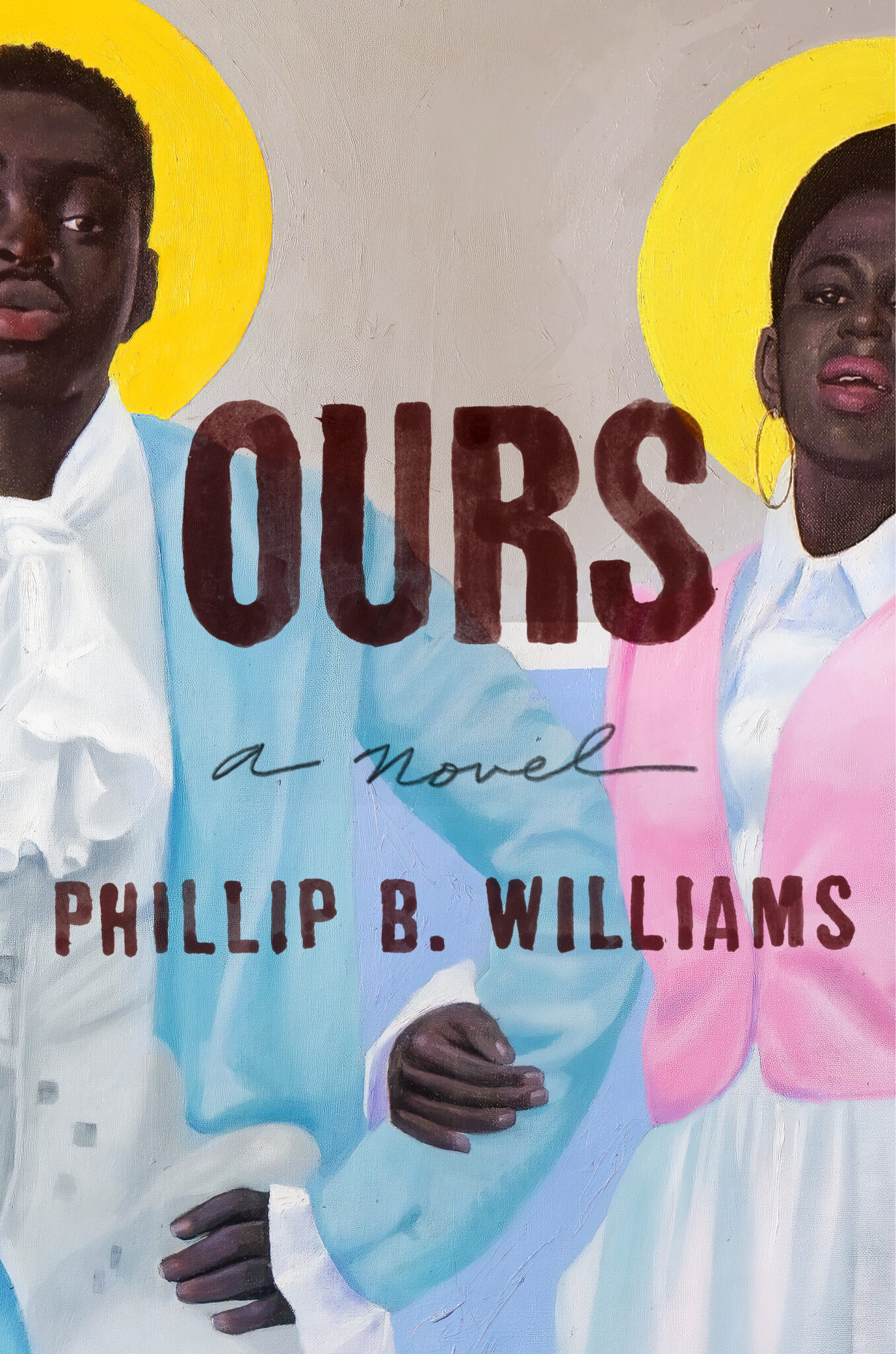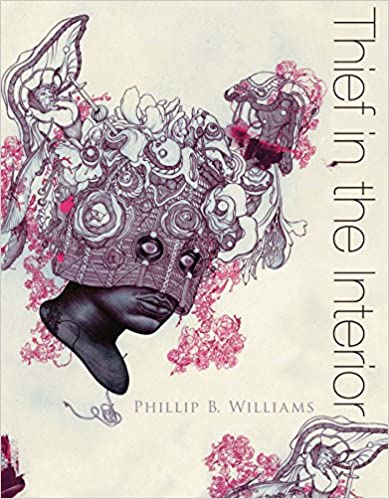

Phillip B. Williams
Award-winning Poet
Lambda Literary Award


Readings &
Lecture Topics
- An Evening with Phillip B. Williams
Biography
“Williams demonstrates an astounding technical mastery of poetic forms that goes far beyond form for form’s sake, as he repeats, reconfigures, and recontextualizes words and phrases in order to create continuity and multifaceted meanings.” ―Muzzle Magazine
“Williams sings for the vanished, for the haunted, for the tortured, for the lost, for the place on the horizon where the little boat of the human body disappears in a wingdom of unending grace.” ―The Best American Poetry
“To experience Williams’ poetry is to encounter a lucid, unmitigated humanity, a voice for whom language is inadequate, yet necessarily grasped, shaped, and consumed.” ―Rachel Eliza Griffiths
Phillip B. Williams is the author of Mutiny (Penguin Random House, 2021), winner of the 2022 American Book Award, and Thief in the Interior (Alice James Books, 2016), winner of the 2017 Kate Tufts Discovery Award and a 2017 Lambda Literary award. He is also the author of the chapbooks Bruised Gospels (Arts in Bloom Inc., 2011) and Burn (YesYes Books, 2013). His debut novel, Ours (Penguin Random House, 2024), is an epic about the spiritual costs of a freedom that demands fierce protection. Set over the course of four decades and steeped in a rich tradition of American literature informed by Black surrealism, mythology, and spirituality, Ours is a stunning exploration of the possibilities and limitations of love and freedom.
Mutiny is a rebellion, a subversion, an onslaught. In poems that rebuke classical mythos and western canonical figures, and embrace Afro-Diasporan folk and spiritual imagery, Williams conjures the hell of being erased, exploited, and ill-imagined and then, through a force and generosity of vision, propels himself into life, selfhood, and a path forward. Intimate, bold, and sonically mesmerizing, Mutiny addresses loneliness, desire, doubt, memory, and the borderline between beauty and tragedy.
In his debut collection Thief in the Interior, Williams investigates the dangers of desire, balancing narratives of addiction, murders, and hate crimes with passionate, uncompromising depth. Formal poems entrenched in urban landscapes crack open dialogues of racism and homophobia rampant in our culture. Multitudinous voices explore one’s ability to harm and be harmed, which uniquely juxtaposes the capacity to revel in both experiences.
Of Thief in the Interior, Los Angeles Book Review noted, “The seasoned reader of poetry will be impressed that Thief in the Interior is Phillip B. Williams’s first collection. His control of the line is masterful, and his syntax eschews, for the most part, direct or simple delivery of language, creating a formal and solemn tone that scores the emotional pitches of the book.” Author Adrian Matejka notes, “Williams’s poems embody balance: uncompromising and magnetic, surprising and intuitive. Need is everywhere―in the unforgiving images, in lines so delicate they seem to break apart in the hands, and in the reader who will enter these poems and never want to leave.”
Williams’s work has appeared or is forthcoming in Boston Review, Callaloo, Kenyon Review, The New Republic, The New Yorker, and others. He is the recipient of a 2020 creative writing grant from the National Endowment for the Arts, a 2017 Whiting Award, and a 2013 Ruth Lilly Fellowship. He serves as a faculty member at Randolph College’s low-res MFA.
Short Bio
Phillip B. Williams is the author of the debut novel Ours, and the collections Mutiny, winner of the 2022 American Book Award, and Thief in the Interior, which was the winner of the 2017 Kate Tufts Discovery Award and a 2017 Lambda Literary award. He is also the author of the chapbooks Bruised Gospels and Burn. Williams’s work has appeared or is forthcoming in Boston Review, Callaloo, Kenyon Review, The New Republic, The New Yorker, and others. He is the recipient of a 2020 creative writing grant from the National Endowment for the Arts, a 2017 Whiting Award, and a 2013 Ruth Lilly Fellowship. He serves as a faculty member at Randolph College’s low-res MFA.
Videos
Publications
Ours
Novel, 2024
“A beautifully-written and ambitious epic about the complexity of freedom.” —Brit Bennett, author of The Vanishing Half
In this ingenious, sweeping novel, Phillip B. Williams introduces us to an enigmatic woman named Saint, a fearsome conjuror who, in the 1830s, annihilates plantations all over Arkansas to rescue the people enslaved there. She brings those she has freed to a haven of her own creation: a town just north of St. Louis, magically concealed from outsiders, named Ours. It is in this miraculous place that Saint’s grand experiment—a truly secluded community where her people may flourish—takes root. But although Saint does her best to protect the inhabitants of Ours, over time, her conjuring and memories begin to betray her, leaving the town vulnerable to intrusions by newcomers with powers of their own. As the cracks in Saint’s creation are exposed, some begin to wonder whether the community’s safety might be yet another form of bondage. Set over the course of four decades and steeped in a rich tradition of American literature informed by Black surrealism, mythology, and spirituality, Ours is a stunning exploration of the possibilities and limitations of love and freedom by a writer of capacious vision and talent.
Mutiny
Poetry, 2021
Mutiny: a rebellion, a subversion, an onslaught. In poems that rebuke classical mythos and western canonical figures, and embrace Afro-Diasporanfolk and spiritual imagery, Phillip B. Williams conjures the hell of being erased, exploited, and ill-imagined and then, through a force and generosity of vision, propels himself into life, selfhood, and a path forward. Intimate, bold, and sonically mesmerizing, Mutiny addresses loneliness, desire, doubt, memory, and the borderline between beauty and tragedy. With a ferocity that belies the tenderness and vulnerability at the heart of this remarkable collection, Williams honors the transformative power of anger, and the clarity that comes from allowing that anger to burn clean. With a ferocity that belies the tenderness and vulnerability at the heart of this remarkable collection, Williams honors the transformative power of anger, and the clarity that comes from allowing that anger to burn clean.
Thief in the Interior
Poetry, 2016
“This gorgeous debut is a ‘debut’ in chronology only. Need is everywhere—in the unforgiving images, in lines so delicate they seem to break apart in the hands, and in the reader who will enter these poems and never want to leave.”—Adrian Matejka
Phillip B. Williams investigates the dangers of desire, balancing narratives of addiction, murders, and hate crimes with passionate, uncompromising depth. Formal poems entrenched in urban landscapes crack open dialogues of racism and homophobia rampant in our culture. Multitudinous voices explore one’s ability to harm and be harmed, which uniquely juxtaposes the capacity to revel in both experiences.
Articles & Audio
Read What’s In Print
• Kaveh Akbar Interviews Author Phillip B. Williams – Divedapper
• Interview with Phillip B. Williams – de-canon
• Review of Thief in the Interior by Phillip B. Williams – Chicago Review of Books
• On the Shoulders of Beauty: An Interview with Phillip B. Williams – 32 Poems
• A World Without Harm Does Not And Cannot Exist: An Interview – RaceBaitr
• On Phillip B. Williams’ Thief in the Interior – The Adroit Journal
• The Banal and the Profane: Phillip B. Williams – Lambda Literary
Listen to Audio
Ours follows a woman in the 1830s who has the power to free enslaved people – NPR
Selected Writings
EPITHALAMIUM
A kiss. Train ride home from a late dinner,
City Hall and document signing. Wasn’t cold
but we cuddled in an empty car, legal.
Last month a couple of guys left a gay bar
and were beaten with poles on the way
to their car. No one called them faggot
so no hate crime’s documented. A beat down
is what some pray for, a pulse left to count.
We knew we weren’t protected. We knew
our rings were party favors, gold to steal
the shine from. We couldn’t protect us,
knew the law wouldn’t know how. Still, his
beard across my brow, the burn of his cologne.
When the train stopped, the people came on.





